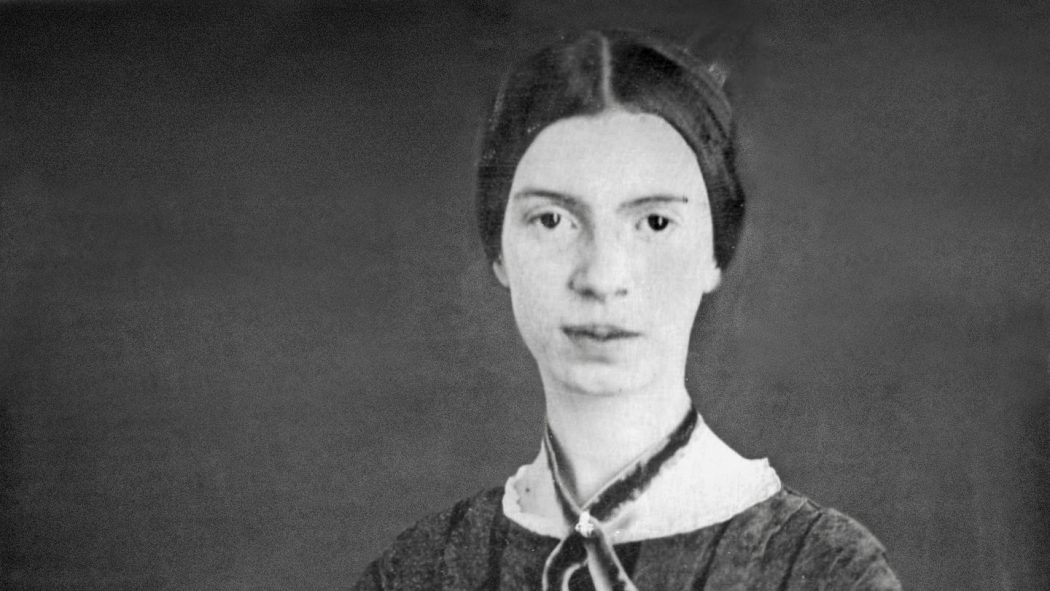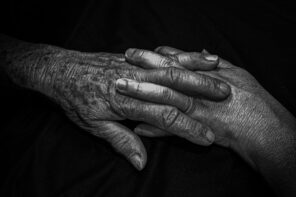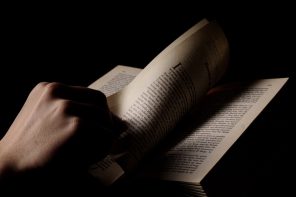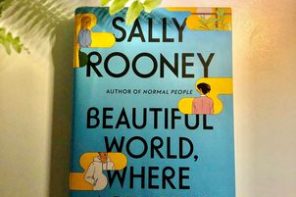There may be no better time than the present to curl up in one’s favorite reading couch/office chair/designated Zoom corner and delve into the poetry of Emily Dickinson. The American Renaissance-era poet spent much of her time in a quarantine-like state, peering out of her bedroom window in her parents’ home to gather poetic inspiration from her backyard in Amherst, Massachusetts. The fruit of her social distancing is a massive collection of poems, some genius, most of which she never saw published during her lifetime. Rather than stifling or claustrophobic, Dickinson’s most famous works are liberal in their exploration of what limited space she had.
Dickinson viewed her poetry as a sort of “letter” to be launched into the frightening, faceless public realm. “This is my letter to the World” accurately expresses the creeping unease I embody every time I post something on social media or email an essay to a professor from my bunker of a bedroom. There is an anxiety attached to this intensely distanced — and, therefore, mediated — form of communication. What if they misunderstand me? How could I possibly convey my true self in a digitized block of writing, or in a cramped, pixelated square? While such concerns were already prevalent in our generation, the pandemic has foregrounded them in a way that speaks to Dickinson.
“This is my letter to the World
That never wrote to Me –
The simple News that Nature told –
With tender Majesty
Her Message is committed
To Hands I cannot see –
For love of Her – Sweet – countrymen –
Judge tenderly – of Me”
Emily Dickinson, “This is my letter to the world.”
The first two lines of the poem convey a particular fear that no one is really paying attention to us anymore. A mosaic of disjointed faces, separated by black squares, who are almost never confident enough to look directly into the camera doesn’t provide the same validation as in-person encounters. We can’t know if our classmate is looking at us as we drone on about the Spenserian stanza, or if they’re scouring Marketplace for more pandemic plants. Like the speaker of Dickinson’s poem, all we can do is hope that everyone cuts each other a bit of slack and responds openly to the questions in the chat.
In confinement, our minds may enter a harmful thought spiral concerning the extent to which we are missing the spontaneity and stupidity of our twenties. With “Some keep the Sabbath going to Church – ,” Dickinson arrives to reground us. Here, she displays her expertise on making the most of the domestic. The gist of the poem is that one need not actually go to church for worship or holy experiences because one’s backyard is teeming with glory.
By “staying at home,” the speaker explains, we can witness the private, everyday wonders of life. Welcome to COVD 119: Introduction to Appreciating the Little Things. Sure, we can no longer get dressed up once a week for soul-feeding social events (which church often is), but we can “just wear [our] Wings” (read: sweatpants, unwashed hair, and a transcendent book.) Life doesn’t stop because its structure seems to have collapsed: “instead of getting to Heaven, at last – / [we’re] going, all along.” Housebound is not a synonym for stagnant. Who better to preach this sermon than a woman of the nineteenth century, a figure who spent a great part of her lifetime quarantined in the domestic realm with no hope of a vaccine?
Dickinson has much to say to those who “could not stop for Death” and those who are left with the loss. If you are pinned down somewhere stifling, pacing the waiting room for this to pass, consider turning to “After great pain, a formal feeling comes – .”
“This is the Hour of Lead –
Remembered, if outlived,
As Freezing persons, recollect the Snow –
First – Chill – then Stupor – then the letting go -“
Emily Dickinson, “After great pain, a formal feeling comes.”
Are we not in the Hour of Lead? Dull, sinking, unspectacular. Invisible ankle weights strapped on as we plod up the steps to the same vacancy, uncertain if we will “outlive” it when so many have not. We are the “Freezing persons” who traverse the grief outlined by Dickinson. First, we have gone through the “Chill,” the initial shock of the teeming hospitals and disrupted careers. Now, perhaps we have moved on to “Stupor,” auto-pilot, numbness to increasingly dismal statistics and eternally-delayed plans. Habituated to the dashes that break up our flow and relationships, as they do to these lines of poetry. The speaker of this poem cannot reassure us that we will surpass this moment. But if we do, she reminds us, “the letting go” will come, as it has in every other instance of “great pain.”
While we await the release that vaccines will hopefully grant us, Dickinson’s poetry may help us thaw the aspects of ourselves and our daily lives that the pandemic has kept in hibernation for too long.








